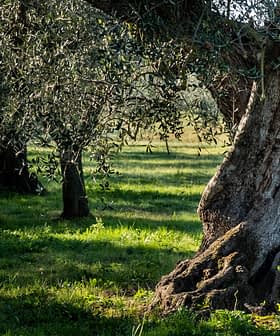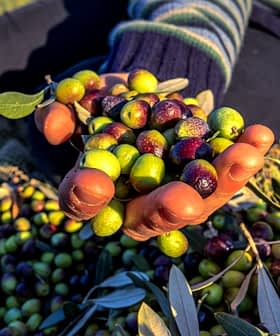Renewed Focus on Quality Pays Off for Brazilian Producers at 2021 NYIOOC
Brazilian producers earned a record-high 18 awards at the World Olive Oil Competition from 19 entries.
Part of our continuing special coverage of the 2021 NYIOOC World Olive Oil Competition.
Brazilian producers enjoyed a record year at the 2021 NYIOOC World Olive Oil Competition, earning a total of 18 awards from 19 entries.
Twelve producers from the southern-most Rio Grande do Sol province and southeastern Serra da Manteqeira region combined to earn 10 Gold and eight Silver Awards, both of which were record-high totals for Brazilians.
The impressive showing from Brazilian producers came despite a poor harvest in 2020, which saw production in both major olive oil-producing regions slump as a result of poor weather throughout the harvest.
Brazil produced about 140 tons of olive oil in 2020, down from 230 tons the year prior. Despite the drop in quantity, Sandro Marques, author of a comprehensive guidebook to Brazilian olive oils, told Olive Oil Times that olive oil quality continues to rise in Brazil.
See Also:The Best Olive Oils from Brazil“I would cite three reasons for overall quality improvement,” he said. ”Knowledge on grove management is increasing; millers that have developed solid expertise are consulting for new producers, elevating extraction quality; some producers, even if olive growing is a second activity for them, have been dedicating a lot of time and effort to their groves, overseeing closely all aspects from land preparation to oil bottling.”
Among the producers who have continued to develop their knowledge and expertise in grove management and milling is Rafael Marchetti, the CEO of Prosperato.
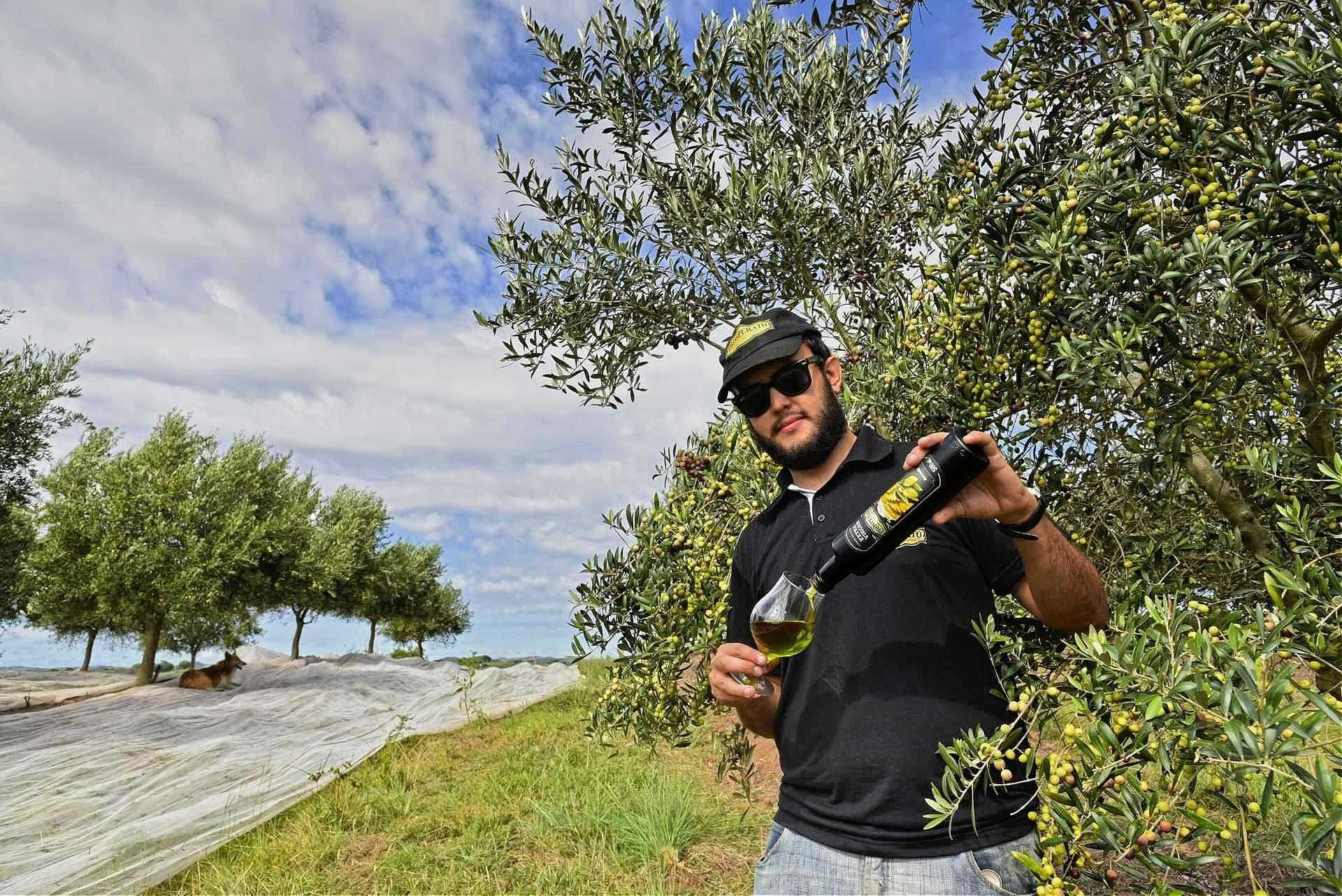
Rafael Marchetti
Brazil’s largest olive oil producing company, which is located in the Capaçava do Sul region of Rio Grande do Sul, won two Gold Awards at the 2021 NYIOOC.
“We still get the willies before the results,” Marchetti told Olive Oil Times. “Even though this is already the fifth year we participate, we never know what the judges will think about our olive oils. So when you see your bottle with a golden seal on the screen, it’s very exciting and rewarding at the same time.”
Prosperato earned the two Gold Awards for a premium blend and medium Koroneiki, bringing the company’s total medal haul at the competition up to nine.
Prosperato sent oils produced in early 2021 to the competition. Marchetti attributed his ability to start harvesting at the beginning of March to the region’s unique climate.
“We are also the first ones to harvest green olives in the Southern Hemisphere at the beginning of the year, delivering olive oils at their peak of freshness for the competition,” he said. “This is something new for the whole world, that never had fresh early harvest olive oil during this time of the year.”
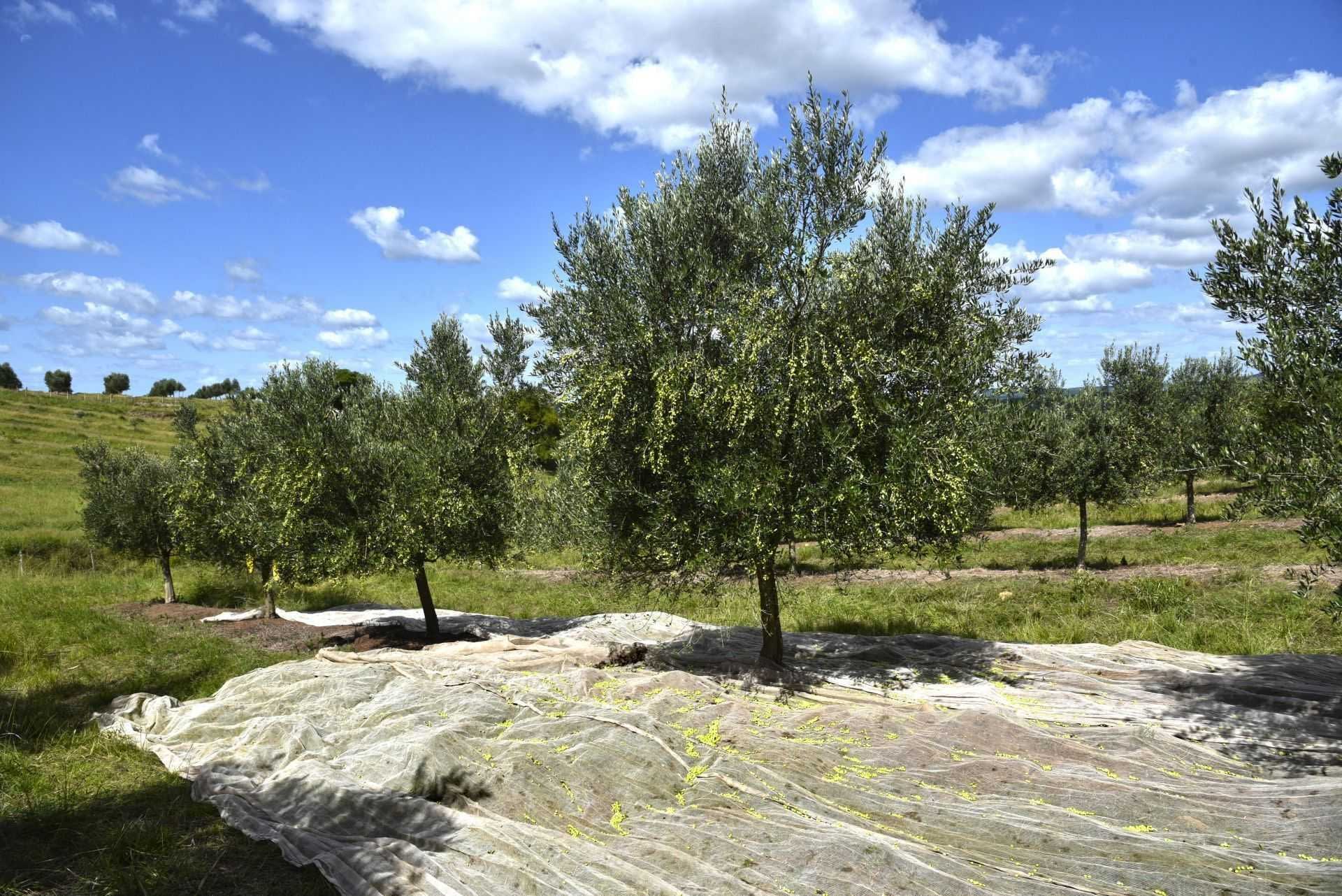
Photo: Rafael Marchetti
For the producers behind Prosperato, these awards have helped the company develop and maintain a loyal customer base, providing the proof to back up his claims that their extra virgin olive oil is among the best in the world.
“It was so important to us for showing to our customers in Brazil that when we were telling them that our olive oils were not alike the others available here, we were actually telling the truth,” he said.
“More recently, since the awards from 2019, it has also opened the doors for our olive oil to go to the United States, the first Brazilian olive oil ever exported,” he added. “Something that is very remarkable for us and that will go down in history.”
Like many other corners of the olive oil world, Marques said that the NYIOOC is highly regarded by Brazilian producers and becoming increasingly recognizable to consumers too. This combination is causing growing numbers of Brazilians to enter the contest and prove the quality of their products.
“For a country with little history in the field, it’s important to have our oils compared to and analyzed along with traditional olive oil-producing countries,” he said. “It shows we are on the right path to quality and excellence.”
After Prosperato, Casa Mantiva was another of Brazil’s biggest winners, earning a Gold and Silver Award for a medium and delicate Koroneiki respectively.
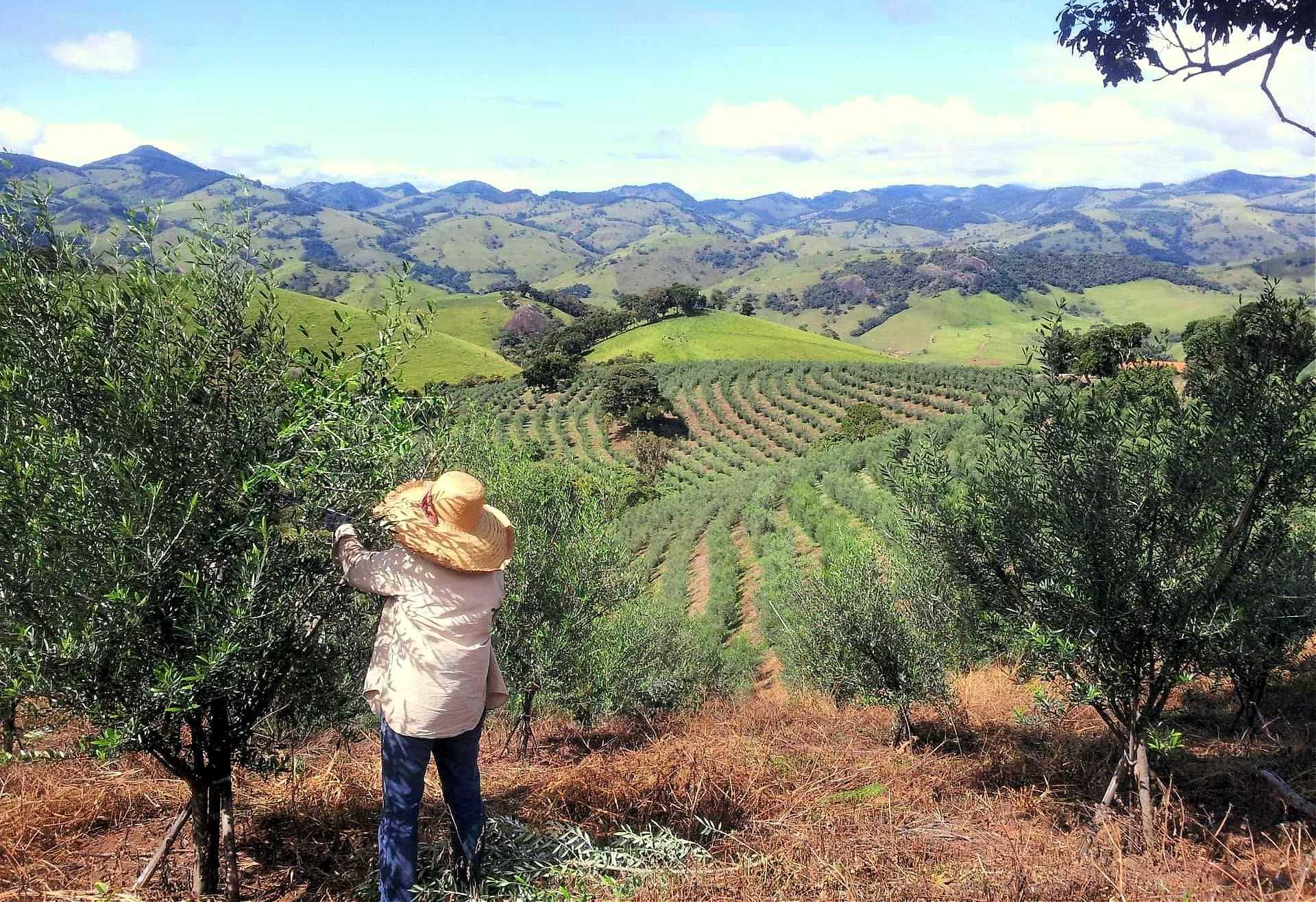
Photo: Carlos Diniz
“We entered the competition because the NYIOOC is a way of having our work and terroir evaluated by experts from different countries,” owner Carlos Diniz told Olive Oil Times.
“It was very gratifying, as we sent two oils from our commercial production and received two awards,” he added. “For us it is an indication that we are doing a good job, working to obtain the best expression of the olive tree in our region.”
Casa Mantiva is situated in the mountains of the Serra da Mantiqueira, which Diniz said makes harvesting a particular challenge every year.
“We carry out a manual harvest, with the help of laborers,” Diniz said. “This year’s production was much higher than in previous years and, added to the restrictions of the pandemic, it was a great challenge to harvest all the olives at the point of maturation that we deem suitable for high-quality oils. The awards were proof that we did it.”
While many Brazilian producers entered the NYIOOC to once again validate the quality of their production process, several other producers decided to submit their extra virgin olive oil samples for the first time to determine where they stood.
Among the first-time entrants was Fernando Rotondo, the producer behind Olivopampa, which earned a Silver Award for a medium Arbequina blend.
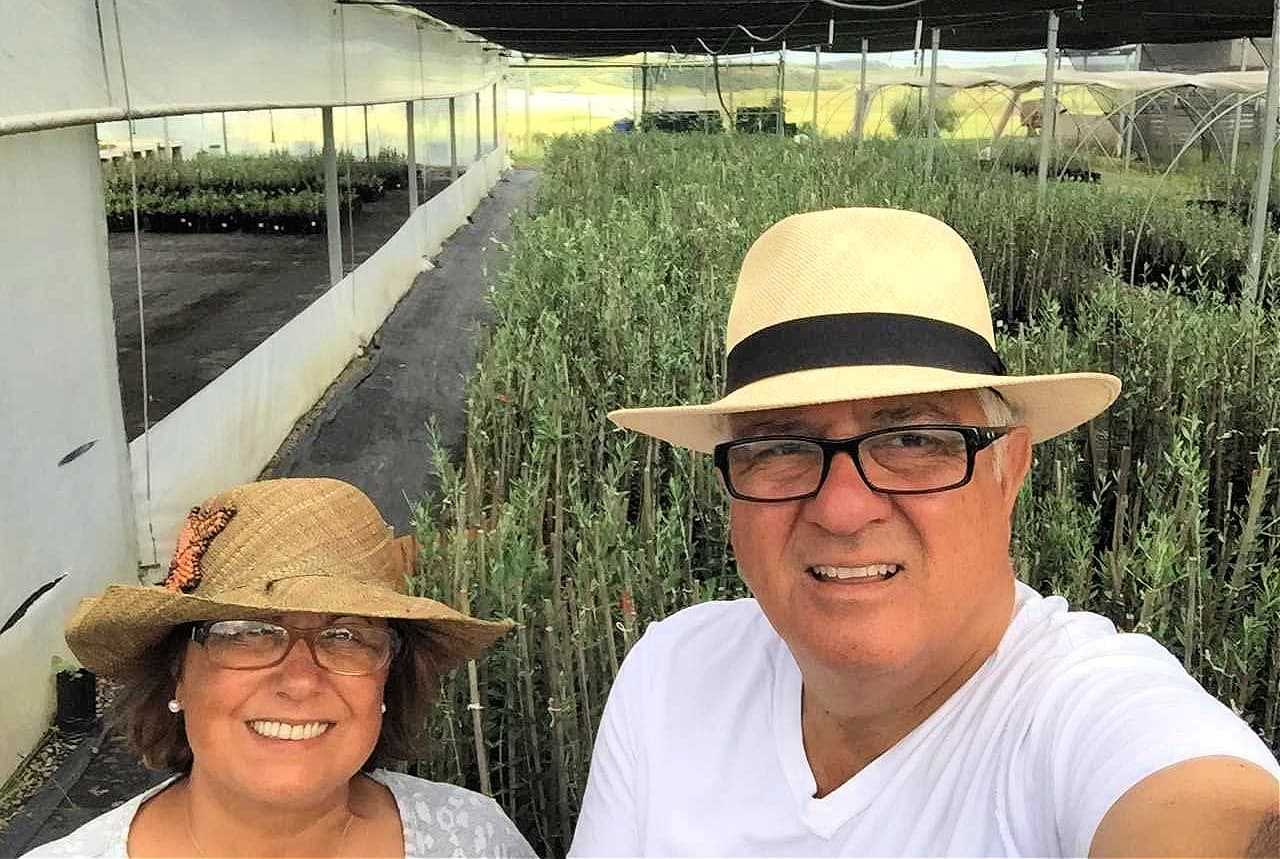
Photo: Fernando Rotondo
“This was our eighth commercial harvest and the sixth in the production of Ouro de Santana Novello olive oil,” Rotondo told Olive Oil Times. “This product concept was an idea that we had in Italy when we participated in a course on olive cultivation and sensory evaluation. We wanted to know how a new oil was perceived, without filtering.”
After working for the agricultural products branch of Dow Chemicals in Milan, Rotondo became enamored with oliviculture and earned a certification in the discipline from the Andalusian Institute of Agricultural Research and Training (IFAPA).
In 2008, he returned to Brazil and bought some land on the country’s southern border with Uruguay and started to plant mostly Arbequina and Manzanilla trees.
Rotondo said that he was glad to see that all of his and his family’s passion had paid off in the form of the Silver Award. He hopes that this award will help differentiate his extra virgin olive oils from cheap imported oils and local competitors.
“We are in a relatively new market with many potential consumers still lay in olive oil,” he said. “There is a lot of work to be done to educate the consumer. The market is flooded with imported products of low quality and price. There is still little perceived value in quality due to a lack of knowledge.”
Capolivo, another small family-run producer based in southern Brazil, also entered and won at the NYIOOC for the first time this year.
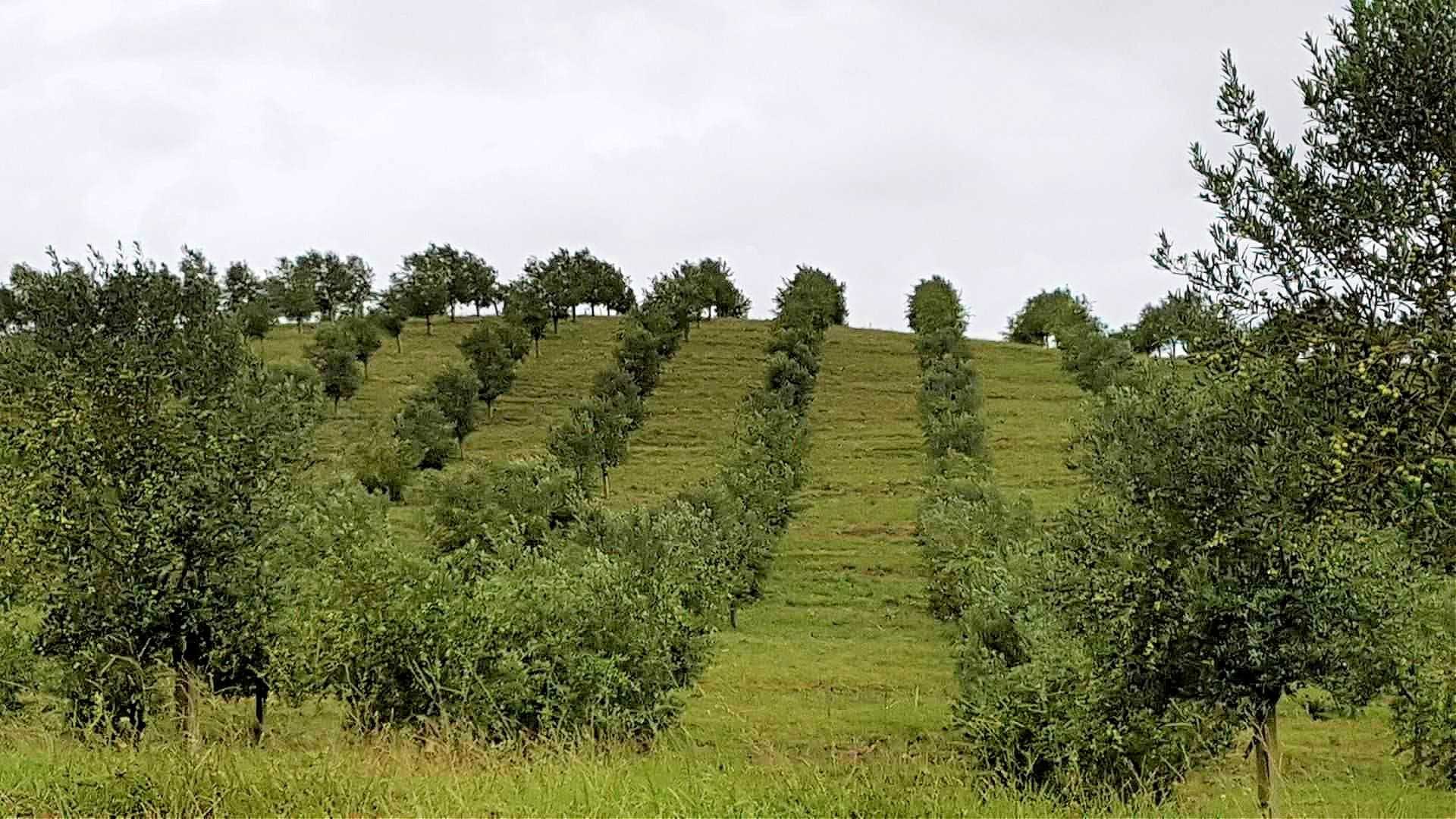
Photo: Joice Capoani
“We decided to enter the competition this year because we recognize how important and prestigious it is and how much recognition of this level would mean for our company,” Joice Capoani, the company’s commercial director, told Olive Oil Times.
“We are very flattered to have been chosen among so many other excellent producers,” Capoani added. “It is a great honor to receive this award and it is living proof of the dedication and seriousness we put into our production.”
Capolivo earned a Silver Award for its medium Koroneiki, which Capoani said stands out from its competitors due to the family’s ability to control every step of the process from harvesting the olives to bottling the oil.
“We believe a lot in the quality of our products and we see the love and effort during all the processes involving Capoivo oils closely, which makes our company stand out,” she said. “We are involved in the journey of our products from planting to the filling of olive oil and we believe that this commitment and seriousness make the difference.”
Capoani added that despite the logistical challenges created by the Covid-19 pandemic – a challenge cited by most producers interviewed by Olive Oil Times during the previous harvest – winning the Silver Award made the extra efforts to safely and successfully produce well worth it.
“The NYIOOC award brings more recognition to our brand and opens up very opportune paths,” she said. “We had one more confirmation of the quality and excellence of our products and this drives us to improve more and more and to dream bigger.”
As Marques mentioned, part of what is driving the quality revolution in Brazil is the renewed efforts of producers, who are not specifically focused on making olive oil, to create high-quality products.
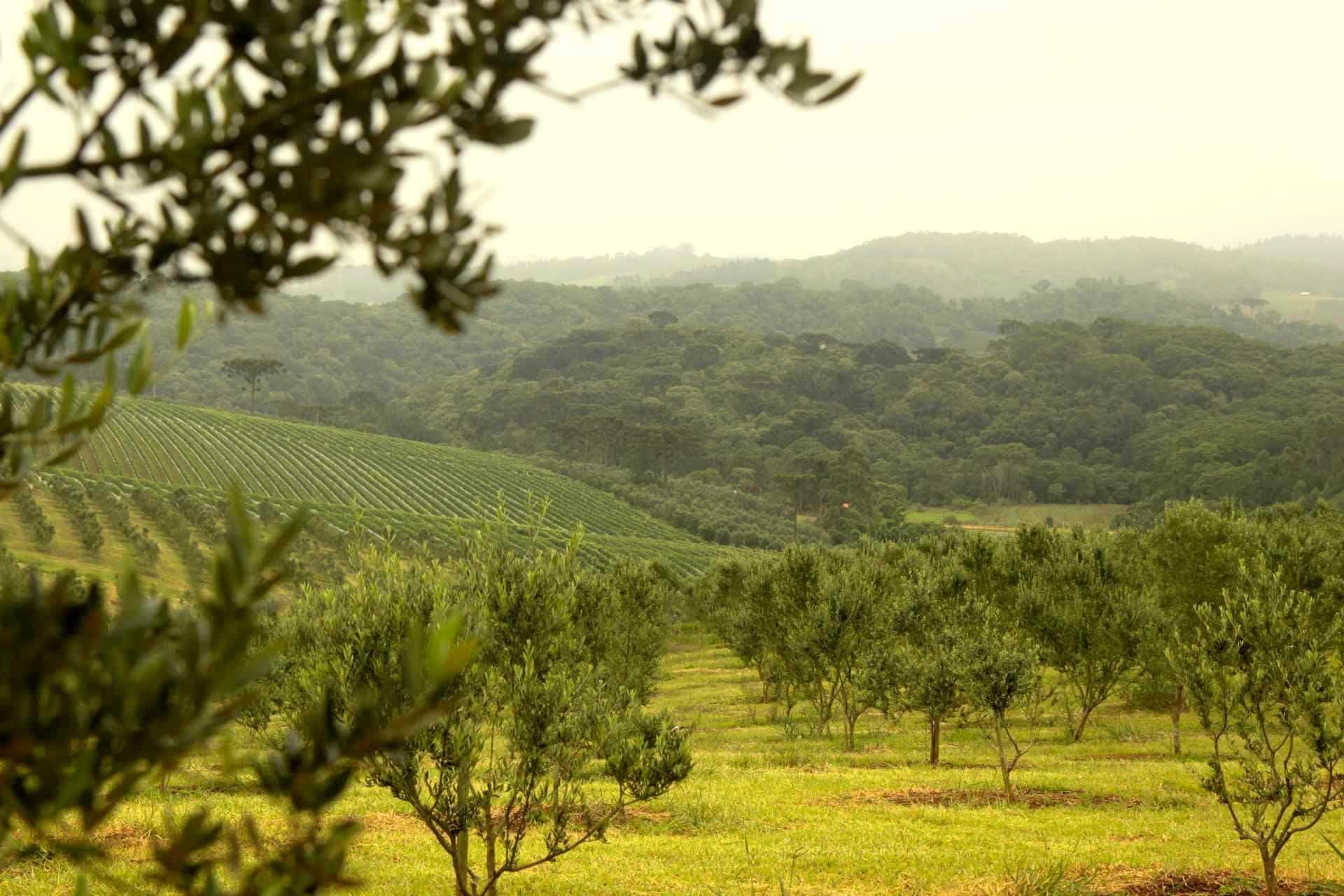
Photo: Adriana Davo Valencia
The Davo Family Winery, which is also situated in the Serra da Mantiqueira, was among the prime examples of this at the 2021 NYIOOC.
The company earned a Silver Award for a delicate Arbequina in their inaugural olive oil harvest, which excited the producers behind the family-run winery immensely.
“The search for excellence is part of the valuesof the company founded by José Afonso Davo, and participating in competitions of this magnitude only adds to this search,” Adriana Davo Valencia, the administrative director of the winery, told Olive Oil Times.
The winery’s expansion into olive oil is part of their larger effort to produce a more diverse portfolio of high-quality products. As with every other producer that entered the NYIOOC this year, the Silver Award was a validation of the company’s efforts and pointed them in the right direction for future harvests.
“This award is the result of a lot of effort and the constant search to offer the best products, elaborated from rigorous techniques, innovation and a lot of love for the land and its fruits,” she said. “The award is received with great joy, and we understand that it is part of a journey that is being built on a lot of knowledge and dedication.”




